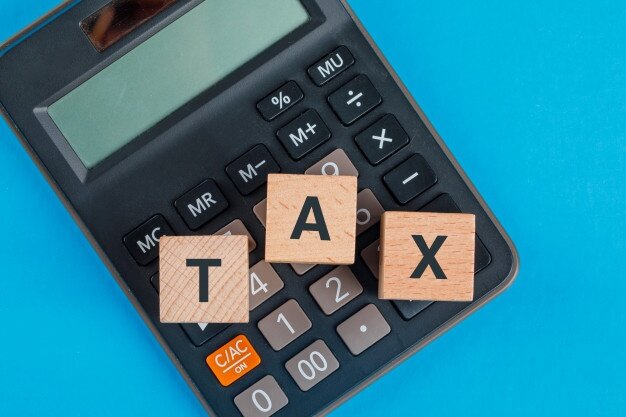
If you are a homeowner, you may be wondering if you have to pay taxes when selling your home. It is a common question on taxes, but it is not clear cut.
For many homeowners, the prospect of selling their home can be quite intimidating. This is a big decision that will have an impact on your life and the taxes you owe.
When it comes to taxes, there are many things homeowners need to know when they sell their home. It is not as simple as knowing how much taxes they need to pay when selling a house or what taxes they may be responsible for in general. The taxes you owe when selling your home can depend on different things, whether or not you plan on moving again in the future.
In some cases, taxes can be quite high when selling a property. Here is everything you need to know about taxes when selling a home.
Even if homeowners have gained tens of thousands of dollars in equity while owning their homes, most can avoid paying capital gains when they sell their house in San Antonio due to a special provision in the tax code known as the “homeownership exclusion.” In fact, homeowners are entitled to one of the most beneficial tax deductions available.
6 Things you Should Look For to Avoid Paying Capital Gains Taxes when Selling your Home
1. – What Is Capital Gains, and Why Should You Be Careful about It?
Capital gains taxes are taxes on the profit you made when selling your property at a higher price than what you paid for it. There are two types of capital gains taxes that apply to homeowners, short-term and long-term taxes.
The capital gains tax rate for a sell your home is based on an IRS formula that takes into account your regular income tax bracket as well as the amount of time you lived in the house. For example, If your home is worth $100,000 and you sell it for $110,000, you’ll have to pay capital gains tax on the difference of $10,000.

2 – When you sell your house, how much profit you make will depend on a few factors
For many homeowners, taxes do not loom as large as the fear that they will lose money on the sell of their home. However, taxes can often account for a big part of your profits. If you are looking to sell your home soon and want to know how taxes may impact your situation, here is what you should consider:
First, in most cases the capital gains tax only applies to gains of more than $250,000 in sell price or in a joint tax return, a couple can make up to $500,000 the sale of their home tax-free.
Second, in most cases it also does not apply to sell prices that are less than what you originally paid for the house.
Third, it’s important to remember that if you sell your home that is not your primary residence, then all the capital gains tax rules are applicable
3 – How can I avoid paying capital gains taxes when selling my house?
There are a few things homeowners can do to avoid paying taxes when they sell their home. The first thing you should know is that the IRS does not look at your home as an investment, but instead as a primary residence.
There are a few ways you can avoid taxes when selling your home, but there is one in particular you should consider:
– Homeowner Exclusion: If you have owned and lived in your home for at least two out of the last five years, you can exclude up to $250,000 of the profits from taxes. If you are married, you and your spouse can exclude up to $500,000 of the profits from taxes. This exclusion can also apply if you sell your home after owning it for less than two years, as long as you have not excluded the gain on another home sale during the past two years.
4 –It will be simpler to save money if you maintain a strict record keeping.
When you sell your house, whether or not it is for a profit depends on the cost of acquisition and the costs associated with fixing up the property, so make sure that everything has been documented for simplicity and taxes.
Though it might seem like a lot of trouble, keeping track of all your documents and receipts will make the process go more smoothly, be sure to File away all your documents so that you will have records of your expenses.
5 – What about if I need to sell? Should I worry about Taxes??
Though not everyone has to sell their homes, there are many reasons why they might sell a property. Some of these include a change in life, circumstances such as a divorce or death, moving closer to work, behind in payments, work loss, foreclosure, problematic tenants, house needs to many repairs, etc
It is important to understand that if you need to sell your home, or want to sell in the near future, you should consider reaching out to a home buyer who will present to you different options available for your specific situation, including some in which you may be saving on taxes.
6 – What if I don’t live in the house for 2 years?
If you do not live in your home for at least two out of the last five years, you will have to pay capital gains taxes on all of the profits from the sale. The IRS will consider this property as investment and not a primary residence, so you will be taxed at the higher capital gains tax rate.
The biggest thing to remember when it comes to taxes and selling your home is that each situation is unique. Reach out to a trusted advisor for more specific information about how taxes will impact you when selling your house.
The taxes on a home sell will vary from person to person depending on their specific situation. Whether or not you have to pay taxes on the sale of your home, it is important to be aware of how taxes work and how they might impact you.
Selling your home is a big transaction, regardless of whether it’s for profit or not. If you are looking to sell your house, reach out to us we would be happy to present you with multiple options you can choose from.
Go To House Buyer does not provide legal, tax, or investment advice. This material is for informational purposes only. It should not be considered as investment advice and may not be used as a basis for any financial decisions. Please seek advice from a professional in these areas before making a decision.

